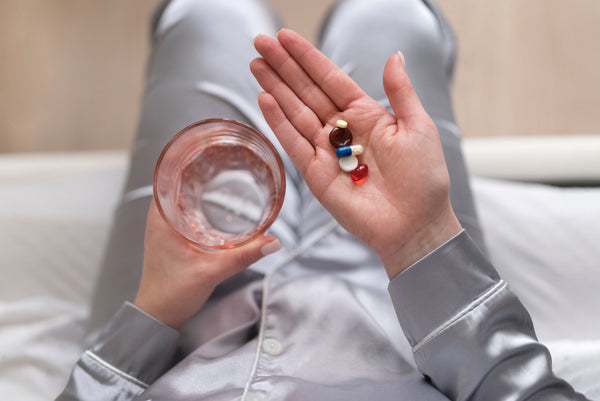Turmeric is one of the quintessential spices that you’ll find in every Indian household. After all, you can add this spice to a majority of the dishes as a primary ingredient. Not only does it enhance the flavour of the food it’s added to, it’s also known to boost the immune system, which only further increases its value as an essential Indian spice. But did you know that there’s a lot more to this condiment than meets the eye? In this article we shall explore what this spice is all about and why most people swear by it as one of the most effective home remedies.
What is Turmeric?
A perennial herb native to India, turmeric, which is scientifically known as Curcuma longa, is closely related to members of the ginger family. It needs a warm climate to grow and thrive, which is why it is predominantly found in India, mainly in the states of Andhra Pradesh, Orissa, Karnataka, Tamil Nadu, Gujarat, Meghalaya, West Bengal, Maharashtra, and Assam. Turmeric is slightly aromatic and has scents of orange or ginger.Turmeric is considered to be one of the most potent herbal medicines in traditional Ayurvedic culture.It is acquired from the rhizome of the plant, which is dried prior to using it in a powdered form. It gets its yellow colour from an essential chemical compound known as curcumin, which is responsible for its numerous health benefits.
Nutritional Component of Turmeric
Turmeric is known to be one of the most nutritionally enriching spices. Turmeric contains vitamin C, vitamin B6, calcium, iron, dietary fiber, sodium, and protein. Furthermore, it is a rich source of calcium, zinc, iron, magnesium, manganese, and potassium. Turmeric also contains an essential chemical known as curcumin, which makes it one of the healthiest spices. To know more about it, let us look at the individual benefits in detail below.Benefits of Turmeric
According to traditional Ayurvedic and Chinese medicine, turmeric has many health benefits such as reducing inflammation in the body, improving skin health, detoxifying the liver, boosting cognitive function, enhancing cardiovascular health, and delaying the aging process, among other things.Anti-inflammatory properties:
Curcumin, the active ingredient in turmeric, is what lends it its anti-inflammatory properties. Research studies show that curcumin inhibits the molecules that cause inflammation in the body. That is why those suffering from arthritis or joint pain, and stiffness are told to take turmeric pills or supplements.According to the Arthritis Foundation, a dosage of 400 to 600 milligrams (mg) of turmeric capsules three times a day, or half to three grams of turmeric root powder per day will likely provide relief from inflammation.
Rich in antioxidants
The primary function of an antioxidant is to neutralize free radicals that are created as a result of oxidative stress in the body. These free radicals are the root cause of chronic diseases like diabetes, cardiovascular ailments, and even cancer, among others. Curcumin is a potent antioxidant that reduces free radicals and inflammation in the body.
Detoxifies the Liver
Did you know that turmeric and its active organic compound, curcumin, plays an instrumental role in improving liver function? The liver is a vital organ as it metabolises fats, proteins, and carbohydrates, regulates most chemical levels in the blood and produces and excretes a product called bile that aids in digestion, among other things. It is therefore necessary that the liver undergoes detoxification every once in a while to function properly. Research shows that curcumin helps to detoxify the liver and improve its function. The antioxidant potential of turmeric helps to reduce liver damage due to toxicity build-up and protect it from chronic diseases such as fatty liver and cirrhosis.Improves Skin Health
Turmeric is known for its antiseptic, antimicrobial and anti-inflammatory properties. These properties of the spice inhibit the growth of acne-causing bacteria and further manages the skin’s natural ability to secrete oil, ensuring it doesn’t do so in excess. Thus, a consistent use of turmeric is recommended by most dermatologists and cosmetologists as an effective way to clear acne scars and have flawless, glowing skin.Furthermore, it helps fasten the process of wound healing and also aids in soothing skin irritation. As stated above, curcumin is an antioxidant that neutralizes the effects of free radical activity in the body and skin is no exception. It slows down aging by fighting wrinkles, pigmentation and other damages caused due to oxidative stress.
Improves Cognitive Function
Research suggests that curcumin acts as an antioxidant that helps to improve memory and moods among people and inhibits free radical activity that could lead to serious irregularities in brain function. There are a few animal studies that suggest that curcumin could be beneficial in treating cognitive impairment. However, additional research is required to corroborate this benefit.Improves Heart Health
If your cholesterol levels are high or are suffering from high blood pressure then turmeric is something you should definitely add to your daily diet. Curcumin helps to control and manage cholesterol levels by preventing plaque build-up in the arteries. This in turn keeps cardiovascular ailments like atherosclerosis at bay.Helps To Prevent Gastrointestinal Issues
Do you often complain about stomach-related issues such as acidity, constipation or heartburn? Well, before you resort to over the counter medications, try to alter your food habits. Turmeric, as per traditional medicine, is known to soothe gut-related issues. The anti-inflammatory and antispasmodic properties of curcumin helps to lower the inflammation in your gut, and reduce the risk of developing ulcers, among other things.

This is where our product, Apple Cider Vinegar Plus (containing turmeric, amla, black pepper, and cinnamon) comes into the picture. Not only is apple cider vinegar good for digestion and weight loss, but the turmeric present in it, further enhances its ability to inhibit gastrointestinal issues. The problem usually with turmeric or curcumin is its bioavailability, which renders the full absorption of the spice into the bloodstream difficult, causing one to miss out on all its benefits. But the inclusion of pepper in this ACV ensures that you get to fully benefit from all its health advantages.
May Help Prevent Diabetes
If you are worried about your blood sugar levels and are at a high risk of developing type-2 diabetes due to either poor metabolism or insulin sensitivity, then ensure that you include tumeric in your daily diet or take pills/supplements as per the recommended dosage. Curcumin is scientifically proven to decrease the level of glucose in blood, as well as other diabetes-related complications. So consult your regular medical professional for the exact dosage before starting with any supplements.Helps with respiratory issues
There’s a reason why you were told to have a glass of turmeric milk every time you complained of a sore throat as a kid. The anti-inflammatory and antispasmodic properties of turmeric heals throat irritation and stops it from aggravating into a serious respiratory ailment. Furthermore, it boosts the immune system keeping cold, cough, and flu symptoms at bay. It also helps remove phlegm and reduce symptoms of chest congestion.
Curcumin features as a main ingredient in Wellbeing Nutrition’s Melts Throat Relief.

Final Takeaway
It’s pretty clear that turmeric is a one-stop solution to all our health problems. No wonder it is such an important spice in the Indian cuisine! You can try different ways to incorporate turmeric in your diet such as by making turmeric ginger tea, turmeric/ golden milk, or by simply adding it as a spice to your food. You can also take it in the form of supplements. However, it’s best to consult a doctor about its recommended dosage.
References:
● Turmeric and curcumin: biological actions and medicinal applications, Chattopadhyay, Ishita ; Biswas, Kaushik ; Bandyopadhyay, Uday ; Banerjee, Ranajit K (2004) Turmeric and curcumin: biological actions and medicinal applications Current science, 87 (1). pp. 44-53. ISSN 0011-3891. (http://repository.ias.ac.in/5196/)
● https://www.nutritionvalue.org/Spices%2C_ground%2C_turmeric_nutritional_value.html
● https://www.arthritis.org/health-wellness/treatment/complementary-therapies/supplements-and-vitamins/supplement-and-herb-guide-for-arthritis-symptoms
● Chainani-Wu N. Safety and anti-inflammatory activity of curcumin: a component of tumeric (Curcuma longa). J Altern Complement Med. 2003 Feb;9(1):161-8. doi: 10.1089/107555303321223035. PMID: 12676044. (https://pubmed.ncbi.nlm.nih.gov/12676044/)
● Sökmen M, Akram Khan M. The antioxidant activity of some curcuminoids and chalcones. Inflammopharmacology. 2016;24(2-3):81-86. doi:10.1007/s10787-016-0264-5. (https://www.ncbi.nlm.nih.gov/pmc/articles/PMC4883448/)
● Farzaei MH, Zobeiri M, Parvizi F, et al. Curcumin in Liver Diseases: A Systematic Review of the Cellular Mechanisms of Oxidative Stress and Clinical Perspective. Nutrients. 2018;10(7):855. Published 2018 Jul 1. doi:10.3390/nu10070855. (https://www.ncbi.nlm.nih.gov/pmc/articles/PMC6073929/)
● Vaughn AR, Branum A, Sivamani RK. Effects of Turmeric (Curcuma longa) on Skin Health: A Systematic Review of the Clinical Evidence. Phytother Res. 2016 Aug;30(8):1243-64. doi: 10.1002/ptr.5640. Epub 2016 May 23. PMID: 27213821.(https://pubmed.ncbi.nlm.nih.gov/27213821/)
● Mishra S, Palanivelu K. The effect of curcumin (turmeric) on Alzheimer's disease: An overview. Ann Indian Acad Neurol. 2008;11(1):13-19. doi:10.4103/0972-2327.40220. (https://www.ncbi.nlm.nih.gov/pmc/articles/PMC2781139/)
● Wongcharoen W, Phrommintikul A. The protective role of curcumin in cardiovascular diseases. Int J Cardiol. 2009 Apr 3;133(2):145-51. doi: 10.1016/j.ijcard.2009.01.073. Epub 2009 Feb 23. PMID: 19233493. (https://pubmed.ncbi.nlm.nih.gov/19233493/)
● Zhang DW, Fu M, Gao SH, Liu JL. Curcumin and diabetes: a systematic review. Evid Based Complement Alternat Med. 2013;2013:636053. doi:10.1155/2013/636053. (https://www.ncbi.nlm.nih.gov/pmc/articles/PMC3857752/)
● Curcumin use in pulmonary diseases: State of the art and future perspectives, Diana Lellia, Amir hossein Sahebkar, Thomas P.Johnston, Claudio Pedonea, Pharmacological Research. (https://www.sciencedirect.com/science/article/abs/pii/S1043661816307083)

























